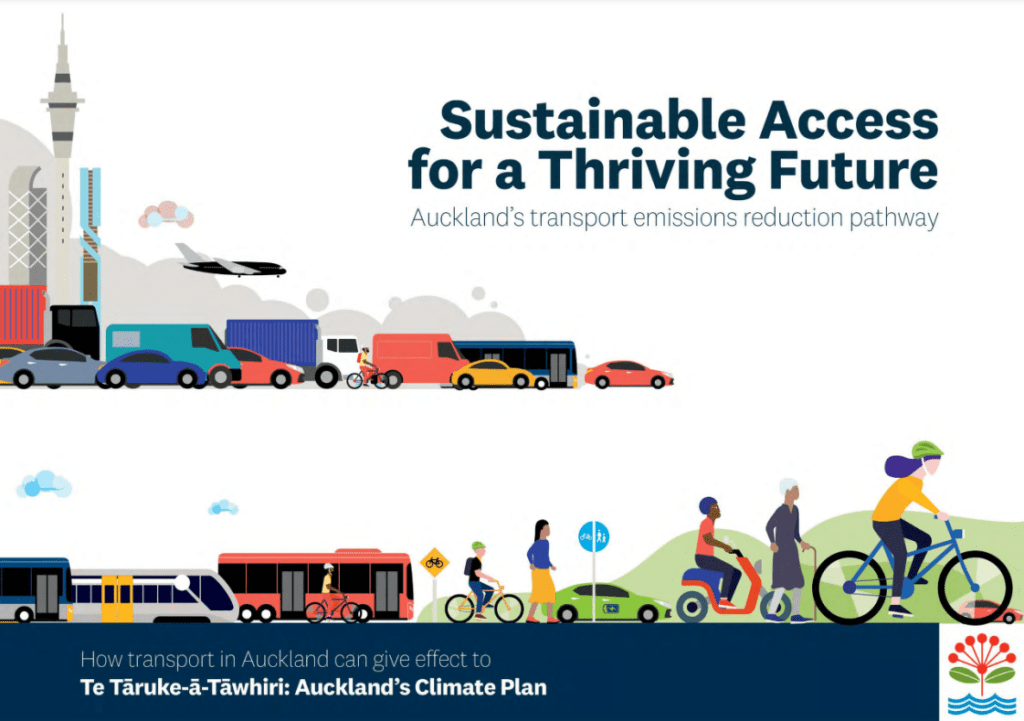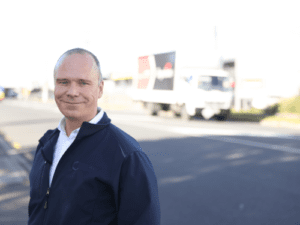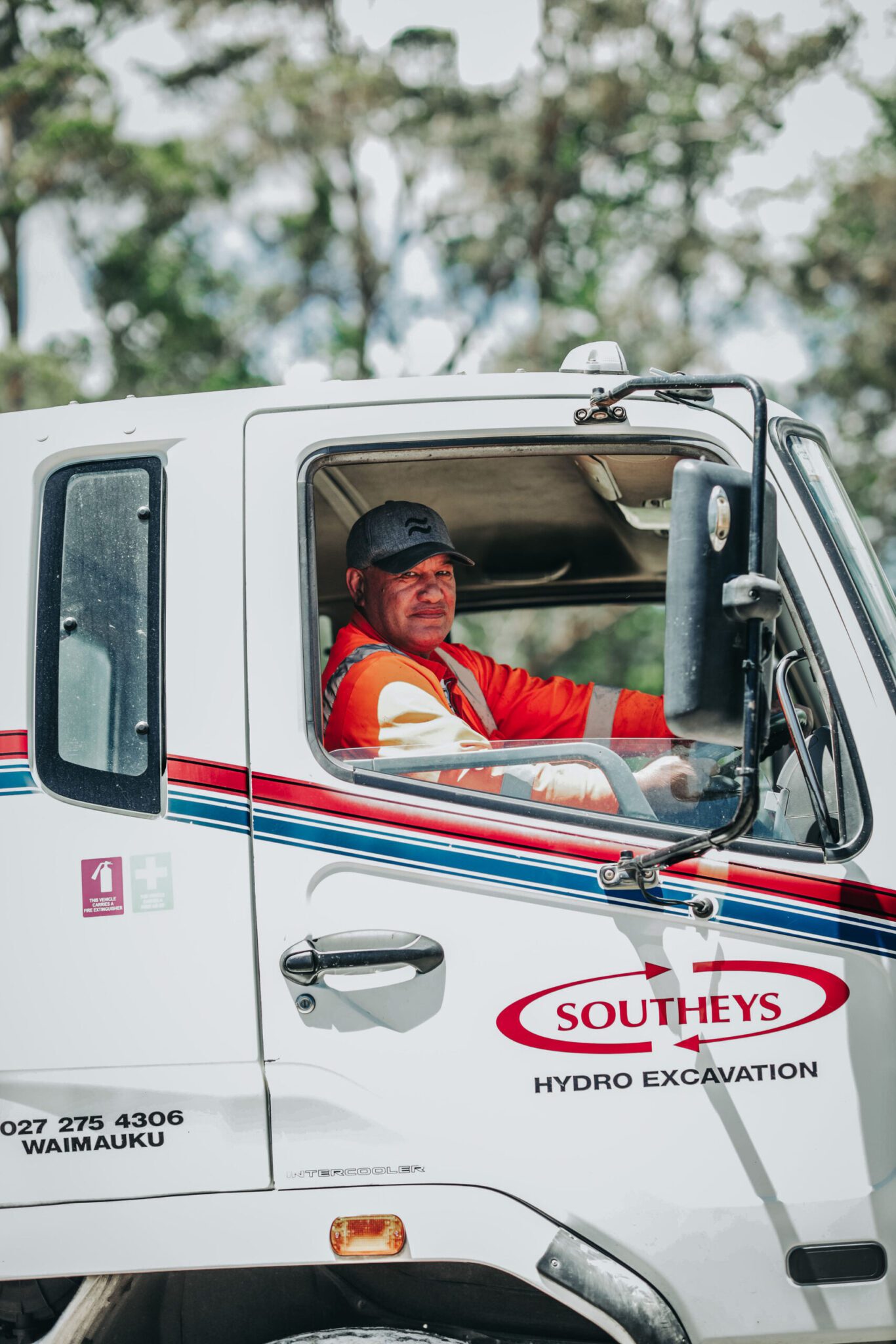Following this week’s first NRC Transport and Logistics Advisory Group Meeting, Justin sat down with Chair, Simon Bridges to get his thoughts on Auckland Councils plans to reduce transport emissions.
Justin – Your opinion piece in the New Zealand Herald this week called out Auckland Council’s transport emission plans, what are the main issues?
Simon – On the surface its easy to simply say Auckland Council’s Transport Emissions Reduction Pathway (TERP) paper is about reducing carbon emissions so that has to be a good thing. But if you’re a bit of a policy boffin, like me, when you go digging and find that the TERP recommendations are no longer required to factor in ‘travel time criteria’ as part of the decision-making process that raises some serious red flags.
Justin – According to the AA’s Annual Congestion Report 2021 peak travel times continue to increase across the city, with a combined journey time increase of 71 minutes across Auckland’s five motorways from June 2020 to June 2021. What is the impact of removing “travel time criteria from design standards and business cases?”
Simon – By saying, getting from A to B more quickly is no longer a factor in decision-making on transport projects, and the focus will instead be on priorities like safety, resilience, choice and, importantly, emissions reductions – this will create unintended consequences. Not least of all for everyday Aucklanders spending ever extending amounts of time stuck in traffic.
Private vehicles account for over 90 per cent of the travel on Auckland’s roads, and these numbers are expected to remain static into the future. Disregarding the efficient movement of these vehicles around the city will further damage our productivity which according to the New Zealand Productivity Commission shows we work 34.2 hours per week compared with 31.9 hours per week in other OECD countries, and produce less: $68 of output per hour, compared with $85 of output per hour in other OECD countries.
To ignore the efficiently movement of vehicles across Auckland will cost billions in lost productivity, increase the burden on employees affecting the overall liveability of the city.
Justin – So, what message is this sending Aucklanders and Auckland-based businesses?
Simon – The message here is that the transport programme – which Aucklanders will have to pay for through fuel tax and rates – is going to ignore the single most important aspect to Aucklanders. The time it takes us to get places.
In my opinion this speaks to an inability by Auckland Council to grasp the social and economic impacts of what is being proposed in the TERP, this vision of societal change is simply unrealistic, and will not support the prosperity and wellbeing of Aucklanders.
Justin – What approach do you believe needs to be considered?
Simon – There are three foundational principles I believe Auckland Council and the Government need to consider to ensure success.
Firstly, a commitment to anchor transport strategy and plans in an ‘evidence-based’ approach needs to underpin all transport plans. The TERP’s function is described as providing “a picture of what needs to be true in 2030 to achieve the target; it is not an assessment of whether it is feasible to deliver the mix of programmes that would lead to the required transformation”.
This is a huge, complicated problem that calls for a great deal of disruption and sacrifice. Instead of making aspirational or hopeful words, we must confront it with solutions based on solid evidence. Ideas that are presented without thorough justification analysis and clear disclosure of advantages and costs do little to progress the conversation; in fact, they may even serve to stall it by informing the public that there isn’t anything worthwhile to discuss.
Secondly, targeted action. In addition to being urgent, action on transportation emissions must be focused. This calls for being realistic and single-minded, while concentrating our limited efforts on the areas that will result in the largest decrease in emissions.
Decarbonisation of the vehicle fleet offers the best chance for advancement given the dominance of cars and trucks in the New Zealand transportation sector. Prioritising this must come before initiatives to get Aucklanders out of their cars.
And thirdly, social and economic sustainability. In order to obtain long-term public support, the emissions reduction strategy must be reasonable and realistic in terms of its impact on Aucklanders.
Justin – It seems like the Government is keen to “pull every lever” in their efforts to achieve New Zealand’s emission reduction goals. What pitfalls does this type of approach have?
Simon – Simply put, some levers should never be touched; others, if pulled the wrong way, will end up doing more harm than good. For instance, turning entire stretches of road into bus and bike lanes will inevitably result in increased congestion, and will, of course, will increase emissions. Likewise speed calming measures that require drivers to slow down as they approach the bump and speed up after traversing it, burning more fuel, and thus increasing vehicle emissions.
The public must be transparently informed of the costs of initiatives from the outset and those costs must be adequately understood. Auckland Council and Government shouldn’t spend time on ideas that are likely to be unaffordable for households and the economy as a whole, such as extra road levies Auckland Council and the Government are investigating in addition to congestion pricing to discourage driving.
Instead, policymakers should be using an evidence-based approach, that is targeted to specific outcomes and is both socially and economically sustainable – with the long-term impacts to the communities it will affect top of mind.
Simon Bridges is CEO of the Auckland Business Chamber, Chair of the Auckland Business Forum, and Chair of National Road Carriers Transport & Logistics Advisory Group. He is a former Minister of Transport and Associate Minister of Climate Change Issues.




